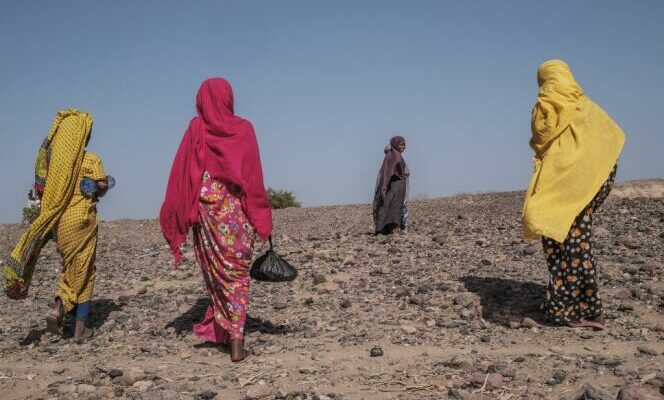Lest their stories disappear, Meseret Hadush is listing the names of thousands of Tigrayan women who were raped during the war in the Tigray region (2020-2022) in northern Ethiopia. His work of remembrance continues more than a year after the peace agreement, signed in November 2022, between the Ethiopian government and the Tigrayan insurgents of the Tigray Popular Front for the Liberation (TPLT).
After collecting nearly 5,000 testimonies with his organization Hiwyet (“healing” in the Tigrinya language), she now fears a ” epidemic “ of AIDS among these women raped by troops from the neighboring Amhara region and Eritrea. Around 15% of them contracted HIV, according to the association’s register where their stories are recorded.
Before the conflict, Tigray and its 6 million inhabitants were a model in the fight against AIDS in Ethiopia. The prevalence rate (the number of infected people) had fallen to 1.43%. Then, starting in November 2020, war hit this mountainous and arid province, the cradle of Ethiopian civilization. Unbelievably violent, the clashes which took on a strong ethnic dimension would have caused up to 600,000 deaths according to the toll established by the African Union. They were also accompanied by numerous rapes. Regional authorities in Tigray estimate the number of victims of sexual abuse at 120,000.
“A grandmother, her daughter and granddaughter were raped by the same Eritrean soldiers in the suburb of Shire, central Tigray, in December 2020, says Meseret Hadush, misty-eyed, from his office in Makalé, the regional capital. These women from three generations are now HIV positive. This is a tragedy for the future of Tigray. »
” Time bomb “
The region is still struggling to recover from the civil war. Cripples and “broken faces” are everywhere in town. In Makalé, where refugee camps still number in the dozens, begging has become the only means of subsistence for all these displaced people in their own country. Economic activity is almost at a standstill and drought has brought hundreds of thousands of Tigrayans to the brink of famine. Hospitals are struggling to regain their pre-war capacity.
“At least we have antiretrovirals”, tries to be positive about Fisseha Berhane, the head of the fight against AIDS at the regional health office. Because Tigray was sorely lacking during the two years of the conflict. “Because of the blockade, HIV-positive people took, at best, expired antiretrovirals”, he said. The clashes damaged or destroyed 70% of hospitals, according to the organization Médecins Sans Frontières (MSF). “We have lost track of 9,000 of the 46,000 patients listed before the war”notes Fisseha Berhane, preferring to use the term “disappeared” to that of “dead”.
You have 55.44% of this article left to read. The rest is reserved for subscribers.
